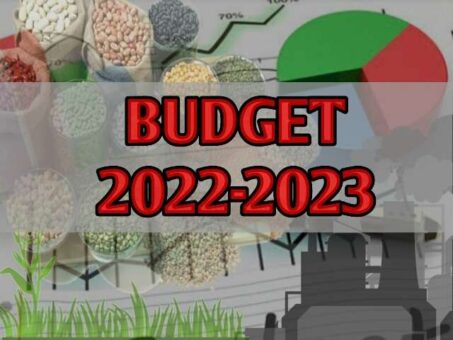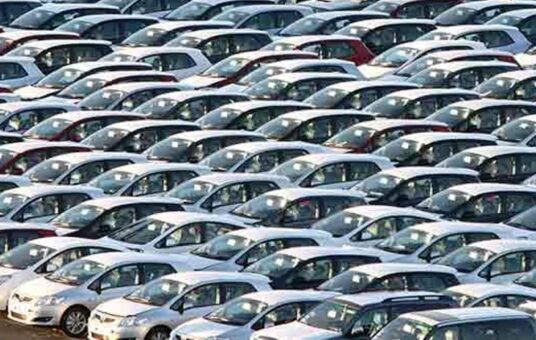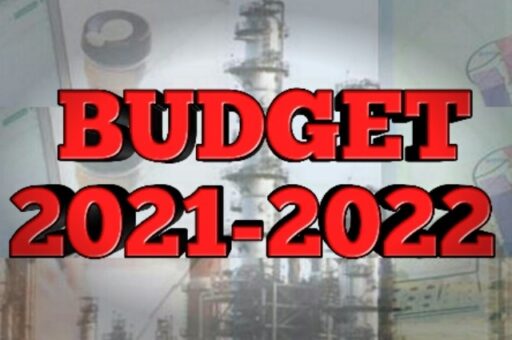Islamabad, June 10, 2025 – The Federal Board of Revenue (FBR) has released a summary of significant changes to the Federal Excise Act, 2005, introduced through the Finance Bill 2025. These amendments are part of broader fiscal reforms aimed at improving tax compliance, curbing tax evasion, and streamlining enforcement mechanisms.
(more…)Tag: federal excise duty
-

FBR explains increase in FED rates through Finance Supplementary Act 2023
ISLAMABAD: Federal Board of Revenue (FBR) on Tuesday explained the increased rate of Federal Excise Duty (FED) applied through Finance Supplementary Act, 2023.
(more…) -

Pakistan announces massive increase in excise duty on cigarettes
ISLAMABAD: Federal Board of Revenue (FBR) on Tuesday announced massive increase in federal excise duty on sales of cigarettes.
(more…) -

Pakistan may increase normal sales tax rate to 18%
Pakistan is likely to increase sales tax rate to 18 per cent in the federal budget 2022-2023, which is scheduled on June 10, 2022. The existing normal sales tax rate is 17 per cent.
According to Budget Preview 2022/2023 issued on Thursday, analysts at Arif Habib Limited said the government is considering to raise an additional Rs400 billion – Rs450 billion during next fiscal year 2022/2023.
READ MORE: PM Shehbaz assures favorable measures on CNIC requirement
For this purpose, the analysts said, the government plans to raise revenue from the following measures:
- Increase in general sales tax (GST) from 17 per cent to 18 per cent
- Increase in GST on fertilizer products from 2 per cent to 17 per cent
- Increase in corporate tax rate / windfall levy by 3 per cent
- Incremental super tax of 3 per cent on commercial banks
- Increase in personal income tax
- Increase in federal excise duty (FED) by Rs 500/ ton on cement
- Increase in FED on tobacco
- Increase in Customs Duty from 2 per cent to 6 per cent on edible oil imports
- FBR’s administrative measures
- Imposition of additional taxes on real estate.
The analysts said that the fiscal policy should remain supportive of the economy in the short term, with targeted measures to collect tax and reduce expenditure, backed by credible medium –term fiscal consolidation plan.
READ MORE: New tax measures likely in budget 2022-2023
“However, in short term, need of the hour is taking tough fiscal measures given the tight fiscal situation.”
Pakistan achieved total revenue growth of 18 per cent during the first nine months (July – March) 2021/2022 to Rs5.4 trillion up from Rs4.6 trillion in the corresponding months of the last fiscal year, which comes out to be 9.2 per cent of the GDP against 9 per cent in the same period last year.
The analysts said that the total tax revenue collection was up by 33 per cent year on year (YoY) to Rs4.82 trillion while non-tax revenue of Rs1.05 trillion, displayed a decline of 14 per cent YoY.
READ MORE: Pakistan Budget 2022-2023 – estimates
The government expects the tax revenue collection to settle at Rs 7.9 trillion for FY23b, a jump of 19 per cent YoY compared to tax revenue of pKR 6.6 billion for FY22E. Likewise, to ensure prudent fiscal management, IMF also proposed stringent FBR tax revenue target of Rs 7.26 trillion compared to Rs 6.1 trillion for FY22E, which is much needed given the overall fiscal situation of the economy. Also, from the government’s standpoint, in order to ensure growth moderation, the analyts believe that the government will not shy away from putting additional major tax burden on the different economic classes of the community and might take some non-populous taxation measures in order to ensure the same.
The government is planning to raise an enormous total tax collection target of Rs 7.9 trillion through new taxes worth Rs 400-450 billion, additional taxes on higher income salary bracket, raising Rs 4.7 trillion through indirect tax measures, and the rest is likely to be collected from administrative measures and by bringing more people under the tax net. They believe direct tax collection will likely increase due to broadening tax base as government would be targeting to increase the number of income tax filers in the upcoming year.
READ MORE: Compliance cost much higher for corporatization: PSX
Indirect tax contributes around 60 per cent to the overall tax revenue coming in mainly from three major heads including Custom Duty, Sales tax and Federal Excise Duty which contributed around 25 per cent, 67 per cent and 8 per cent, respectively to the total indirect tax collection during 9MFY22. Share of sales tax and custom duty increased in 9MFY22 due to surge in imports of various commodities amid an uptick in aggregate demand of the economy. Going forward, indirect tax contribution is likely to increase by almost 20 per cent (Rs 4.7 trillion) in FY23B due to higher sales tax while higher import bill is likely to earn more tax revenue from custom duties.
Government expects non-tax revenue collection to increase by 12 per cent to Rs 1.6 trillion in FY23 with Petroleum Development Levy (PDL) expected to settle at around Rs 500 billion. The analysts at Arif Habib Limited believe the collection in lieu of PDL is likely to be higher YoY in FY23 with an assumption that government increases it by Rs – 22/litre on MS and HSD. Currently PDL stands at Rs 125 billion during 9MFY22. Another constituent that is likely to support the overall non-tax revenue is expected to be State Bank’s profits. They expect it will be more than last year’s number mainly due to higher interest rates during July – March 2021/2022.
-

FBR issues new FED rates on motor vehicles
ISLAMABAD: The Federal Board of Revenue (FBR) on Thursday issued new rates of Federal Excise Duty (FED) on imported and locally assembled motor vehicles.
The FBR revised upward the FED rates after the implementation of Finance (Supplementary) Act, 2022. In this regard the FBR issued Circular No. 06 of 2022.
Through S. No. 55, 55B, 55C and 55D of Table-1 of the First Schedule to the Federal Excise Act, 2005, the rates of FED on imported, locally manufactured motorcars/SUVs, imported and locally manufactured double cabin are provided respectively.
READ MORE: Banks to share business account details to FBR
In order to rationalize the existing rates of FED on vehicles, the following increase in the various slabs has been made:
Imported motor cars, SUVs and other motor vehicles:
(a) of cylinder capacity up to 1000cc the FED rate has been kept unchanged at 2.5 per cent ad valorem.
(b) Of cylinder capacity from 1001cc to 1799cc the FED rate has been increased to 10 per cent ad valorem from 5 per cent.
(c) Of cylinder capacity 1800cc to 3000cc the FED rate has been increased to 30 per cent ad valorem from 25 per cent.
READ MORE: Debt, credit card machines must for POS retailers: FBR
(d) Of cylinder capacity exceeding 3001cc the FED rate has been increased to 40 per cent ad valorem from 30 per cent
Locally manufactured or assembled motor cars, SUVs:
(a) Of cylinder capacity up to 1300cc has been rationalized at 2.5 per cent. Previously, the FED was zero per cent on up to 1000cc and was 2.5 per cent on 1001cc to 2000cc.
(b) Of cylinder capacity from 1301cc to 2000cc the FED rate has been increased to 5 per cent ad valorem from 2.5 per cent.
(c) Of cylinder capacity 2001cc and above the FED rate has been enhanced to 10 per cent ad valorem from 5 per cent.
READ MORE: FBR slashes sales tax rates on petrol, HSD
Imported double cabin (4X4) pickup vehicles, the FED has been increased to 30 per cent ad valorem from 25 per cent.
Locally manufactured double cabin (4X4) pickup vehicles except the vehicles booked on or before June 30, 2020 subject to the restriction or conditions specified by the FBR, the FED has been increased to 10 per cent ad valorem from 7.5 per cent.
-

Restrictions to up motor vehicle cost, reduce demand
KARACHI: The planned restrictions on automotive industry likely to increase the cost of motor vehicles and simultaneously to reduce the demand.
According to analysts of Topline Securities on Auto Sector, the government is planning to introduce measures to control rising import bill of the country by imposition of increased duties on luxury items including cars. The proposals according to news reports include increase in duties on import of Completely Built Unit (CBUs) and higher Federal Excise Duty (FED) on locally manufactured vehicles.
READ MORE: Pakistan’s car sales declines by 6% in October
The proposed measures under consideration include: 1) increase in regulatory duty (RD) on electric vehicles with 50 KWH battery pack from 10 per cent to 50 per cent, 2) increase in custom duty to 50 per cent from 15 per cent on Hybrid Vehicles on 1501-1800cc cars, 3) increase in FED from 5 per cent to 10 per cent on locally manufactured cars with engine capacity of 1500cc+.
The government has shelved the plan to impose ban on import of CBU and is likely to increase duties and taxes only to curtail rising import bill.
To recall, Pakistan total imports surged by 65 per cent to $25bn in first four months of fiscal year 2021-2022, which led to a current account deficit of $5.1 billion versus surplus of $1.3 billion in same period of the last fiscal year.
READ MORE: Ghandhara Nissan to launch Chery vehicles current fiscal
Pakistan total transport group imports surged by 140 per cent to $1.5bn in first four months of the current fiscal year exerting pressure on total import bill of the country.
It is pertinent to note that as per the Auto Policy of 2016-21, auto manufacturers were allowed to import 100 units of CBU for test marketing before they can start production of cars locally.
This led to sharp rise in CBU imports and there are news reports of potential misuse of the policy as few new entrants have imported more than 100 units.
READ MORE: Tax rates on motor vehicles during tax year 2022
As per said news reports, around 7000 units MG HS by MG Motors have been delivered to the buyers since November 2020 till date whereas it local production of cars just started recently in May 2021.
Similarly, import of other CBUs which includes Toyota Cross, Land Cruiser, Honda Accord etc have also led to higher import bill.
It will be interesting to see how the concerned authorities address the issue as the old auto policy expired in June 2021 and we still await for the new policy.
During the last fiscal year, used CBU imports clocked in at 21,247units whereas new CBU imports touched 6,394 units. The combined (old + new CBUs) contributed around 11 per cent of Pakistan car sales in the last fiscal year.
READ MORE: Indus Motors posts 195% growth in net profit to Rs5.42bn
The analysts said that latest numbers for the same are not available but looking at increased interest of new cars specially in the SUV segment we expect this number to be much higher in FY22.
They believe the decision to increase regulatory duty on CBUs will result in high car prices and may result in reduced demand for imported CBUs by new entrants. It may also force the new entrants to start manufacturing vehicles locally.
However, since the proposal to ban import completely is highly unlikely, the above stated measures are not likely be materially positive for local listed assemblers.
Additionally, expected increase in Federal Excise Duty (FED) to 10 per cent from 5 per cent on 1500+cc locally assembled cars and rising KIBOR (Karachi Interbank Foreign Exchange Rate) is likely to impact car demand going ahead.
READ MORE: SBP issues KIBOR rates on December 08, 2021
Stringent regulatory measures by SBP on auto financing and rising KIBOR is likely to impact car sales going ahead. It is important to note that, auto-financing on average contribute around 30-40 per cent of the total car sales of the industry. In November 2021, Pakistan car sales are anticipated to drop by 10 per cent MoM owing to the above stated measures.
The analysts expect Pakistan car sales to grow by 10 per cent in the ongoing fiscal year after a strong sales recovery in last fiscal year.
They have an ‘underweight’ stance on Pakistan Auto Sector based on the premise of 1) rising kibor, 2) stringent auto-financing policies, 3) increasing cost pressures, 4) likely increase in FED, and 5) expected macroeconomic slowdown.
-

FBR collects Rs107.38 billion as FED from cigarettes
The Federal Board of Revenue (FBR) has reported a substantial increase in the collection of Federal Excise Duty (FED) during the fiscal year 2020/2021, with the duty on cigarette sales leading the way.
(more…) -

Budget 2021/2022: Duty, taxes abolished on cars up to 850cc
ISLAMABAD: The government has announced abolishing duty and taxes on locally manufactured and imported cars with engine capacity up to 850cc to enable low earning families to afford motor vehicles.
Finance Minister Shaukat Tarin while presenting federal #budget 2021/2022 on Friday announced duty and tax incentives for sale and import of motor cars with engine capacity up to 850cc.
The finance minister made following announcement:
Withdrawal of FED and Reduction in Sales Tax on Locally Manufactured cars up to 850 cc: Rising prices of locally manufactured small cars is a major concern for low earning families. Accordingly, it is proposed that small cars upto 850 cc capacity may be exempted from levy of FE besides reducing Sales Tax rate from 17% to 12.5% and withdrawing value added tax.
Exemption from Withholding Tax on Import: It is proposed that no tax may be collected on imports of books, journals, agriculture equipment and motor vehicles in CBU condition upto 850 cc.
To incentives this sector further additional custom duty and regulatory duty on CBU import of vehicles upto 850cc are being exempted.
Whereas relief to existing manufacturing industry and new models is also being provided by removing Additional Customs Duty (ACD) and rationalizing the tariff structure.
Due to these targeted interventions the middle class of this country will be able to afford a car of this specific category and will accrue the benefits of governments flagship projects of “Meri Gari Scheme” which will enable many countrymen who wish to graduate from motorcycle to own their car by providing small car at an affordable price.
Moreover further incentives in the form of reduction of customs duties are also being provided to electric vehicles for one year to promote the culture of electric vehicle in Pakistan.
Similarly, keeping in view the changing international motorcycles trend usage of local manufacturing of heavy motorcycles and specific categories of trucks and tractors are also being incentivised by rationalizing the tariff structure.
Tax Incentives for promoting electric vehicles: To address environmental issues, reduce reliance on gasoline and provide cheaper source of transportation to public, Government of Pakistan is encouraging the manufacture and use of electric vehicles.
For this purpose, various tax exemptions and concessions are being proposed, which include tax exemption on import of CKD kits for local manufacturing of electric vehicles, reduction in sales tax rate on locally manufactured electric vehicles from 17% to 1%, withdrawal ofvalue addition tax on import of electric vehicles and CKD kits and withdrawal of federal excise duty on 4-wheelers electric vehicles.
-

Budget 2021/2022: salient features of budgetary measures in federal excise duty
ISLAMABAD: The federal government on Friday presented budget for fiscal year 2021/2022 and proposed following budgetary measures pertaining to Federal Excise Duty (FED):
REVENUE MEASURES
1. In order to reap reasonable revenue from this sector, federal excise on mobile phone calls exceeding three minutes @ Re 1 per call, SMS message @ Re. 0.1 per SMS, and internet data usage @ Rs. 5 per GB is being proposed. This will result into mild taxation of a broad spectrum of population.
2. Electronically heated tobacco products are also proposed to be brought into the tax net by inserting new S. No. 8c of Table-1 of the First Schedule to the Federal Excise Act, 2005.
RELIEF MEASURES
3. In order to facilitate the people of tribal area and encourage investment and economic growth in these areas, exemption is being given from levy of FED to the industrial units located in FATA and PATA.
4. The provision to revise return without prior approval of the Commissioner-IR which is available in Sales Tax Act, 1990 is now proposed to be made available in Federal Excise Act, 2005.
5. Exemption from federal excise duty to 4-wheelers granted vide granted vide Tax Laws (Amendment) Ordinance, 2021 is proposed to be incorporated in the Federal Excise Act.
6. The rate of federal excise duty on telecommunication is proposed to be reduced from 17% to 16%.
7. Payment on account of Merchant Discount Rate (MDR) is proposed to be excluded from the purview of FED.
8. For establishment of Border Sustenance Markets, exemption from federal excise duty is proposed to be granted on food related and other consumable goods.
9. Rising prices of locally manufactured small cars is a major concern for low earning families. Accordingly it is proposed that small cars upto engine capacity of 850cc may be exempted from federal excise duty.
10. In order to introduce new Export Facilitation Scheme, 2021, exemption on import and zero-rating on local supplies in respect of raw materials, components, parts and plant and machinery to registered persons is proposed.
11. Federal excise duty on fruit juices was imposed vide Finance Act, 2019 and resultantly, prices of juices were increased. Moreover due to pandemic, this sector is faced with adverse situation. In order to provide relief to this sector, it is proposed to withdraw federal excise duty on juices.
-

FED cut for beverage industry in budget likely
KARACHI: The government is seriously considering to bring down federal excise duty (FED) from existing 13 percent to 11.5 percent in the upcoming budget 2021/2022.
According to sources the tax authorities had received instructions to finalize proposals regarding beverage industry for reducing the rate of FED from 13 percent to 11.5 percent.
The FED rate on aerated waters, containing added sugar or other sweetening matter or flavored was increased to 13 percent from 11.5 percent through Finance Act, 2019.
It is interesting to note that Finance Minister Shaukat Tarin in a meeting last week with the delegation of the representatives of the Beverage Industry of Pakistan, said although he is supportive of adopting measures that can boost the industrial development, generate employment and help in expansion of businesses; any decision, regarding the taxation/ relief provided to any industry which has direct linkages with general well being and health of the public, will be taken after a careful analysis of all the facts and arguments.
The Diabetic Association of Pakistan (DAP) in a recent press conference presented alarming rise of diabetic patients in the country due to growing demand for sugar.
Therefore, the association demanded the authorities to double the taxes on sugar-sweetened beverages (SSBs) in the coming budget 2021/2022.
It said diabetes is growing at an alarming rate in Pakistan, which has the 4th highest burden of type 2 diabetes worldwide with more than 19 million cases.
The association demanded the government to increase the FED to 20 percent in the upcoming budget in order to discourage use of beverages.
“Unfortunately, beverages are becoming an increasingly essential part of household food consumption with more than a 10 per cent point increase in the last few years along with a gradual increase in production and decrease in the price,” according to a letter sent to the FBR by the association.
Health experts warned that diabetes was growing at an alarming rate in the country, and as per 2nd National Diabetes Survey of Pakistan 2016-17, every 4th Pakistani adult is suffering from type 2 diabetes.
“Overweight and obesity are key risk factors leading to early development of diabetes. According to the Non-communicable Disease (NCDs) Steps Survey (2014-15), more than four out of ten adults of Pakistan are obese or overweight, while 37 per cent have hypertension,” according to the survey.
WHO and the World Bank also recommended Pakistan for increasing taxes on beverages to reduce obesity and related diseases like diabetes.
The association demanded increase in FED to 20 percent, and create a category of beverages to include sugary drinks beyond aerated water (juices, energy drinks, flavored milk, iced tea, nectars etc.) to impose minimum of 20 per cent excise tax.
